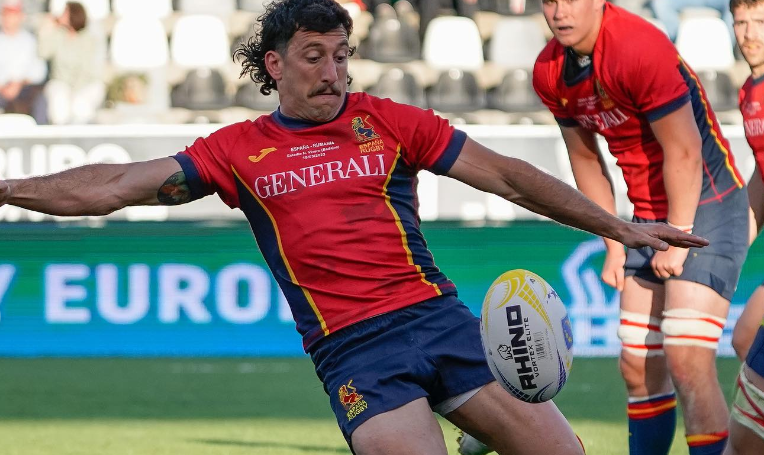Rugby, a sport that is usually associated with the British Isles, New Zealand, and South Africa, has also made significant strides in Spain, a nation more renowned for its football fervour. Yet, the history of rugby in Spain is a tapestry of humble beginnings, cultural integration, and aspirations for international recognition.
The Roots of Rugby in Spain
Rugby’s inception in Spain has its beginnings in the late 19th and early 20th centuries, where it was introduced primarily by students and workers from France and the UK. These early years were characterised by informal matches and the establishment of rudimentary clubs, primarily in cities with significant foreign influence, such as Barcelona and Bilbao. This period culminated in the establishment of the Spanish Rugby Federation in 1923.
However, the outbreak of the Civil War and Franco’s regime stifled the growth of rugby. During this period, rugby was viewed with suspicion due to its overseas origin, whereas football was heavily promoted as a national sport.
Rugby’s Resurgence
The post-war period marked a resurgence in rugby’s popularity in Spain, especially in academic institutions. Although initially dormant due to the war, the Real Federación Española de Rugby played a pivotal role in formalising the sport, organising competitions, and fostering a culture.
During the latter half of the 20th century, rugby began to spread beyond its traditional strongholds, with a steady increase in the number of home-grown clubs, players, and in turn, the quality of play. Spain also saw the creation of regional leagues and the beginning of a national championship, coupled with increased efforts to promote rugby through media and grassroots initiatives.
Into the 21st Century
After competing in the 1999 Rugby World Cup qualifiers, and despite not qualifying, Spanish rugby experienced significant advancements. The national team’s improved performance in European contests showed Spain’s rising standards in rugby. At the same time, a focused effort to nurture the sport at the grassroots level led to integrating rugby into youth and school programs, aiming to build a strong foundation for future generations of players.
A milestone was reached in 2011 with the professionalisation of Spanish rugby, including upgraded training facilities and coaching, enhancing the sport’s quality and competitiveness. This period also saw increased media coverage, which played a key role in elevating rugby’s profile and attracting new enthusiasts to the sport.
The Current State of the Spanish National Team
Today, the Spanish national rugby team, affectionately known as ‘Los Leones’, competes in the Rugby Europe Championship, a tier below the hallowed Six Nations. Although they haven’t reached the heights of their European counterparts, there’s a growing optimism around their potential. Recent performances have shown promise, indicating a gradual improvement in skill and strategy that will only get better in upcoming rugby games.
Rugby’s popularity in Spain has been on a slow but steady rise. Initiatives to promote the sport at the grassroots level have been crucial. Schools and local clubs have started to incorporate rugby into their sports curriculum, aiming to cultivate talent from a young age. This grassroots movement is pivotal for the long-term growth and sustainability of rugby in the country.
Among growing calls for national teams like Georgia to fight for a spot in the Six Nations through a relegation scheme, the aspiration for Spain to do the same does not seem so far-fetched. While this goal may seem distant, the steady progress of the national team, coupled with the growing interest in rugby, makes it a feasible achievement. The journey to such heights will require sustained efforts in nurturing talent, improving facilities, and increasing the sport’s visibility.
It also doesn’t hurt the profile of the sport when actor Javier Bardem makes a surprise appearance at the 2023 Rugby World Cup and announces that he used to play for the Spanish national side! Only time will tell if Bardem’s past tenure as prop for Spain will encourage more young Spaniards to step foot on the rugby pitch or a film set…
Learning from Neighbours
Spain doesn’t have to look far to draw inspiration when it comes to proving themselves on the international stage. Portugal’s qualification for the Rugby World Cup in 2007 and 2023 is a testament to what can be achieved with proper infrastructure, coaching, and player development. After all, in their second appearance at the Rugby World Cup, Portugal not only qualified but had a surprise victory against quarter finalists and rugby stalwarts, Fiji. Spanish rugby should keenly observe Portugal’s blueprint for success, with hopes of replicating it.
Conclusion
The history of rugby in Spain has traversed a path from being an obscure sport brought over by immigrants, to one that is slowly carving out its own niche. The growing national team and the grassroots movement are healthy indicators of a sport on the rise. With continued dedication and support, Spain could be replicating Portugal’s success in the Rugby World Cup, or possibly one day gracing the Six Nations.

